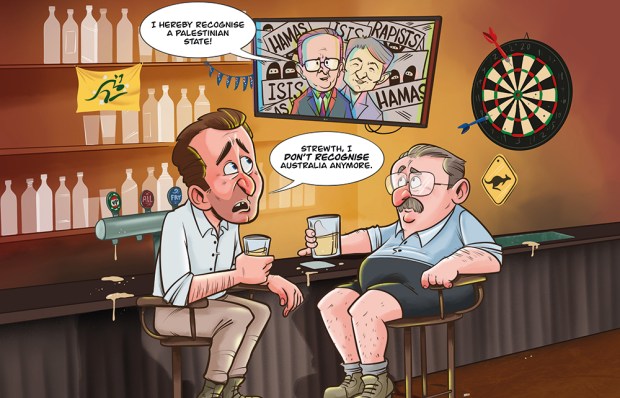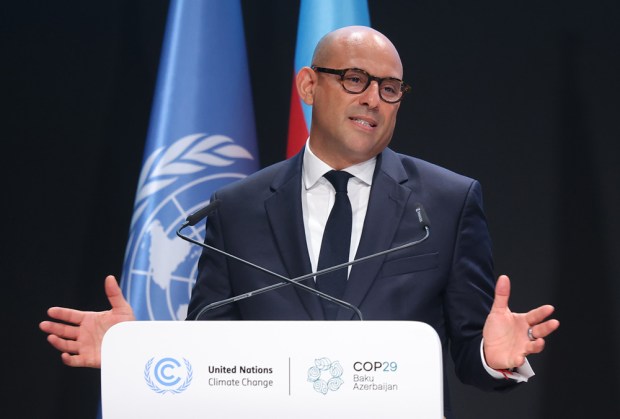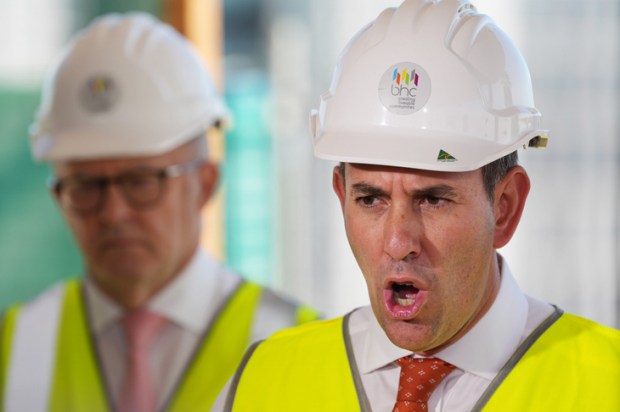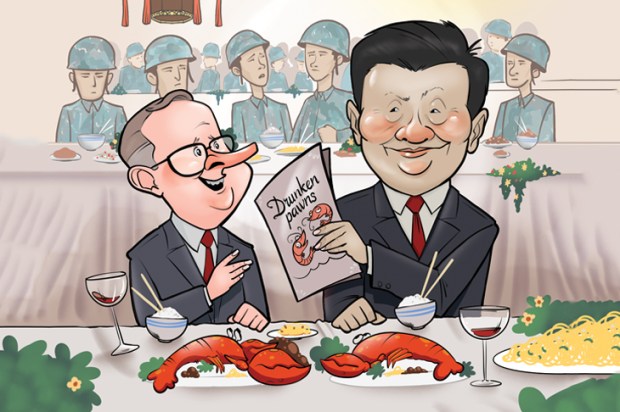When we say the drama surrounding Arthur Sinodinos’s dealings at Australian Water Holdings brings back memories of Watergate, we do not mean the sorry saga will bring down a government as it did a US presidency 40 years ago. What links the two controversies is not just a fortuitous wordplay. It’s the corrosive role of money and influence in our political system.
In the Australian case, questions have arisen over dubious political power-peddling and murky factional wheeling and dealing inside the NSW division of the Liberal party. Mr Sinodinos is rightly lauded as a brave and trusted knight from the John Howard round table. That legacy can never be denied him. It is also true no evidence proves the besieged senator is guilty of any corruption. But, much as a once popular political figure like Richard Nixon could attest, it’s all too easy for the good you’ve done to be submerged in a tide of sleaze if the perception exists that you misused your power. Listen to Sydney talkback radio and read the popular Daily Telegraph, and it’s soon apparent such a perception is now widely held. When columnists such as Miranda Devine and Janet Albrechtsen slam the Liberal hero’s judgment, you know he is in trouble.
Much has been made of the fact that Mr Sinodinos was simultaneously chairman of AWH as well as treasurer of the NSW Liberal party. The impact this had upon AWH will feature in the unfolding ICAC hearings. But what of the reverse? What of the effects upon the Liberal party? As NSW Liberal MP Charlie Lynn says: ‘The integrity of the Liberal party is our most important asset.’ ‘Integrity’ is what voters hope distinguishes the party of Abbott and O’Farrell from that of Obeid and Tripodi.
‘A culture of structural insularity’ is how the Sydney Morning Herald’s Paul Sheehan described the NSW Liberal party in the period leading up to Mr Sinodinos’s elevation to the party presidency in July 2011. ‘The incestuous blurring of the lines between making policy and making money can be seen in… the state executive. Eight of its 18 members are either lobbyists, former lobbyists or negotiating to join lobbying companies. It is an extraordinary number for the peak body of a major party, considering that lobbying is the monetising of political access. The most obvious example of a potential conflict of interest,’ Mr Sheehan concluded, ‘is the career of Michael Photios, who is both a lobbyist and party vice-president.’
Mr Sheehan and many others welcomed the arrival of Mr Sinodinos into this unhappy scene as akin to that of a white knight riding to the rescue of an ailing damsel. Alas, they appear to have been mistaken. Mr Sinodinos was president of the NSW Liberal Party from mid 2011 to late 2012. During this time the extent of factional abuse was arguably unprecedented. Control of the party organization moved inexorably towards further empowering factional head honcho and high profile lobbyist Michael Photios.
As party president, Mr Sinodonis and his state executive used ‘Special Powers’ (translation: rule by decree) more frequently than at any time in the party’s history. ‘Arthurian legend’ tells of the state executive’s amazing ability to draw on these special powers; of using them to deny democratic outcomes and secure the preselection of Photios-backed candidates; of vast sums of NSW Liberal party treasure being directed towards ‘freezing’ branches and stifling debate; of several branches reportedly gifted to the Photios forces. The twist in the tale? Mr Sinodinos essentially prevented the very kind of democratic party reforms being proposed by his former boss Mr Howard but opposed by Mr Photios.
Mr Photios was appointed a lobbyist for AWH while Mr Sinodinos was Chairman. The details are murky but ICAC has heard allegations the AWH board proposed commissioning Mr Sinodinos to negotiate a one million-dollar success fee for Mr Photios if he managed to help win the critical PPP deal for AWH from the O’Farrell Government. Had that deal been consummated all board members would have had their future’s secure including Mr Sinodinos with his hands on a holy grail of up to $20-million. We are not suggesting corruption, but it’s not a good look. Tony Abbott is right: ‘You can either be a power broker, or a lobbyist; but you can’t be both.’
Faceless farewell
Better late than never. Paul Howes, the self-confessed ‘faceless man’ who boasted of destroying a sitting Prime Minister, once declared he would resign as head of the Australian Workers Union if the introduction of the carbon tax cost his workers ‘one job’. So it was reassuring that he finally kept his word.
It would be churlish to suggest the timing of his long-overdue announcement has anything to do with the imminent royal commission into certain trade unions, including his own. Despite the frantic rush by commentators to laud Mr Howes as a man of vision, with suggestions he will return from his self-imposed stroll through the wilderness to lead Labor back to that flickering light on the hill, we remain sceptical.
After all, it was in these pages that Mark Latham belled this particular cat: ‘Howes is still a young man, yet he has changed every policy position he has ever held. In a speech recently, he mentioned the importance of “ideas” no fewer than two dozen times without hinting as to what these ideas might be. It was a word used without meaning or context, as a trophy lined up on a mantelpiece of intellectual pretence. Perhaps he believes if he mentions ideas enough people will think he has some.’
Which is a tad unfair. Who can ever forget Mr Howes’s one big, shiny idea: installing Julia Gillard?
Got something to add? Join the discussion and comment below.
You might disagree with half of it, but you’ll enjoy reading all of it. Try your first month for free, then just $2 a week for the remainder of your first year.












